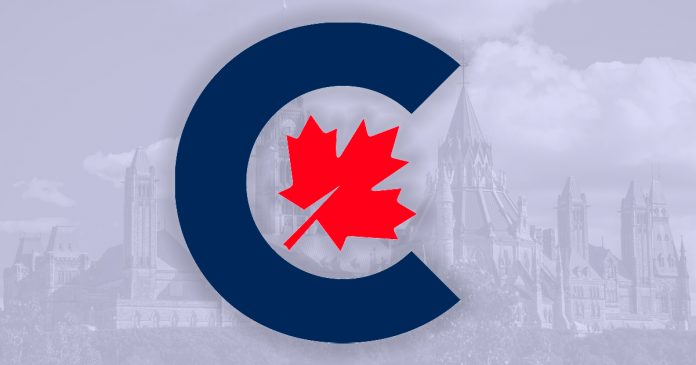Conservative Party of Canada members attending next month’s national convention are set to debate several “anti-woke” policy proposals, True North has learned.
Resolutions advancing to the convention will address gender ideology as well as “diversity, equity and inclusion” (DEI). Other resolutions touch on free speech, fighting child grooming and promoting medical freedom.
True North had a look at the list of the 60 policy resolutions that are set to be debated at the convention.
Policy proposals are submitted by Electoral District Associations (EDAs), which are made up of party members. This gives the possibility for grassroots members to influence the party’s policies.
Conservative policies are non-binding in that leaders are not obligated to include them in the platform and a Conservative government would not have to enact them into law. Nonetheless, official party policy has always been regarded as a useful tool to gauge where the party’s grassroots members are on key issues.
Gender ideology:
Conservative members will debate a policy submission aimed at protecting women’s spaces, including sports, change rooms and prisons. The policy, sponsored by the Edmonton–Strathcona Electoral District Association (EDA), would add to the party’s policy declaration that “the Conservative Party of Canada believes that women are entitled to the safety, dignity, and privacy of single-sex spaces (e.g., prisons, shelters, locker rooms, washrooms) and the benefits of women-only categories (e.g., sports, awards, grants, scholarships).”
The resolution defines a woman as “(a) female person.”
Meanwhile, a policy proposal sponsored by the North Okanagan—Shuswap EDA seeks to have the party support a ban on life altering and irreversible gender transitions for children and teenagers, while encouraging “positive mental and physical health support for all Canadians suffering from gender dysphoria and related mental health challenges.”
The rationale for the resolution notes that “children cannot understand or consent to transitioning.”
DEI ideology:
A proposal sponsored by the Calgary Heritage EDA seeks to put an end to DEI hiring practices and “restore merit in Canada’s innovation by directing hiring practices associated with federal research funding away from ideology and instead emphasizing first and foremost, supporting and retaining Canada’s top research talent, irrespective of personal immutable characteristics.”
Another resolution sponsored by the Edmonton–Strathcona EDA seeks to make the party oppose mandatory DEI training for workers. “Those employed in the public sector, unions or self-regulated trades/professions should not be forced to make affirmations, or participate in ideological programs, as a condition of employment or practice,” reads the proposal.
Free speech:
Delegates will also be debating a policy proposal sponsored by the Perth—Wellington EDA that would strengthen the party’s pro-free speech stance by having it “promote policies and legislation designed to protect freedom of expression (speech) in the public square, including media and internet platforms in accordance with the Charter Of Rights and Freedoms,” and having it support the safeguarding of “Canadians’ Rights to create and access content on the internet without government sanctioned censorship” and the nullification of “unconstitutional restrictions.”
Another proposal sponsored by the St. Albert—Edmonton EDA would replace the campus free speech policy implemented in 2021 that requires universities to adopt University of Chicago principles to receive funding, with calls for a “provincial-federal accord” to tackle censorship in academia.
“A provincial-federal accord is required given that education is the responsibility of the provinces and the protection granted by the Charter of Rights and Freedom can be removed by invoking the Section 33 notwithstanding clause,” reads the proposal.
Child grooming:
Conservative delegates will also be debating a proposal sponsored by the Medicine Hat—Cardston—Warner EDA that would make the party support stronger measures against sex-offenders, pedophiles, human trafficking, and child pornography and have the party support the elimination of all defences that are used to justify “engaging in predatory conduct to prepare a child or young person for sexual activity at a later time (‘grooming’).”
The proposal’s rationale cites “deliberate moves to make access to children much easier” by left-wingers and a “new rebranding of pedophiles to ‘minor-attracted person.'”
Medical freedom:
A policy in favour of bodily autonomy and ethical vaccine production sponsored by the Thunder Bay—Rainy River Conservative EDA will also be debated. The latter would have the party “support domestic research, development and production of vaccines, using a variety of traditional and new technologies, including options for vaccines that do not violate religious beliefs or ethical values of Canadians,” and “affirm Canadians have the freedom and right to refuse vaccines for moral, religious, medical or other reasons.”
Other proposals:
Other resolutions advancing to convention include one to implement a “three strikes” rule for ethics violation, one to end media subsidies, one to defund the CBC, one in support of building of high speed rail, several anti-China policies, one aimed at reforming Canada’s bail system, one to protect vulnerable people from doctor assisted suicide, as well as proposals to eliminate income tax for working seniors and eliminate GST on Essential Maternity and on Newborn Products.
It should be noted that not all 60 resolutions will make it to the main convention floor. Different workshops will debate the resolutions in a first phase. The most popular resolutions will then go to the floor for plenary voting.
The Conservative Party of Canada convention takes place Sept. 7-9 at the Quebec City Convention Centre. True North will be on the ground to bring you independent coverage.






















